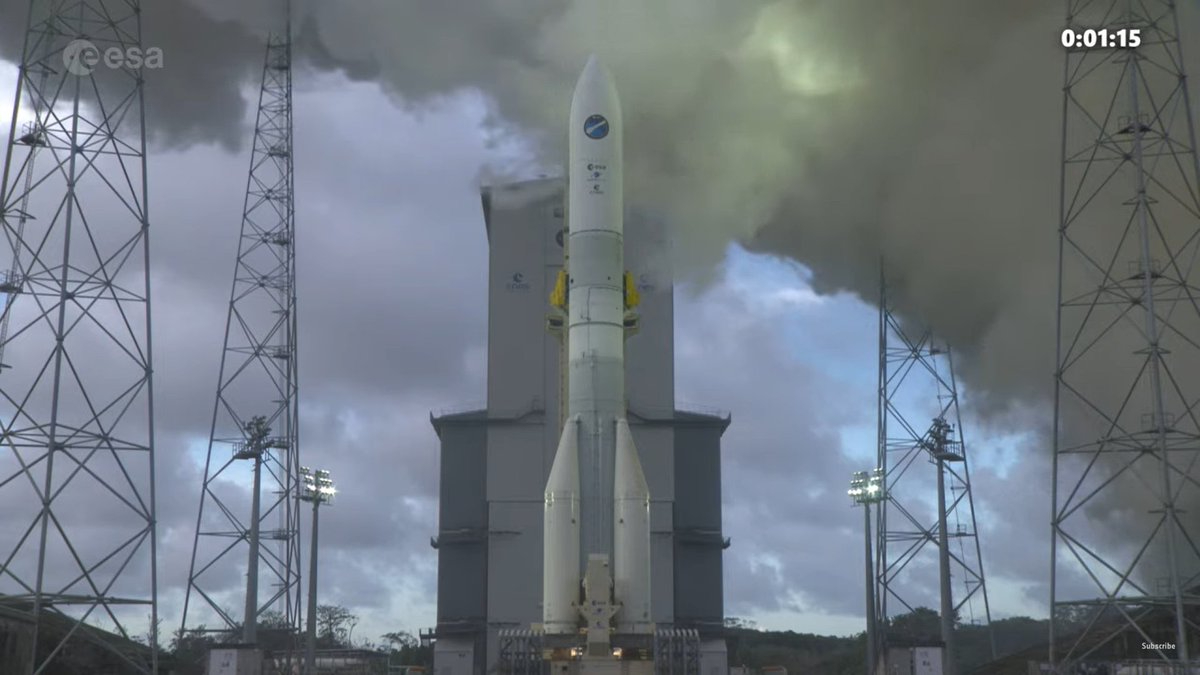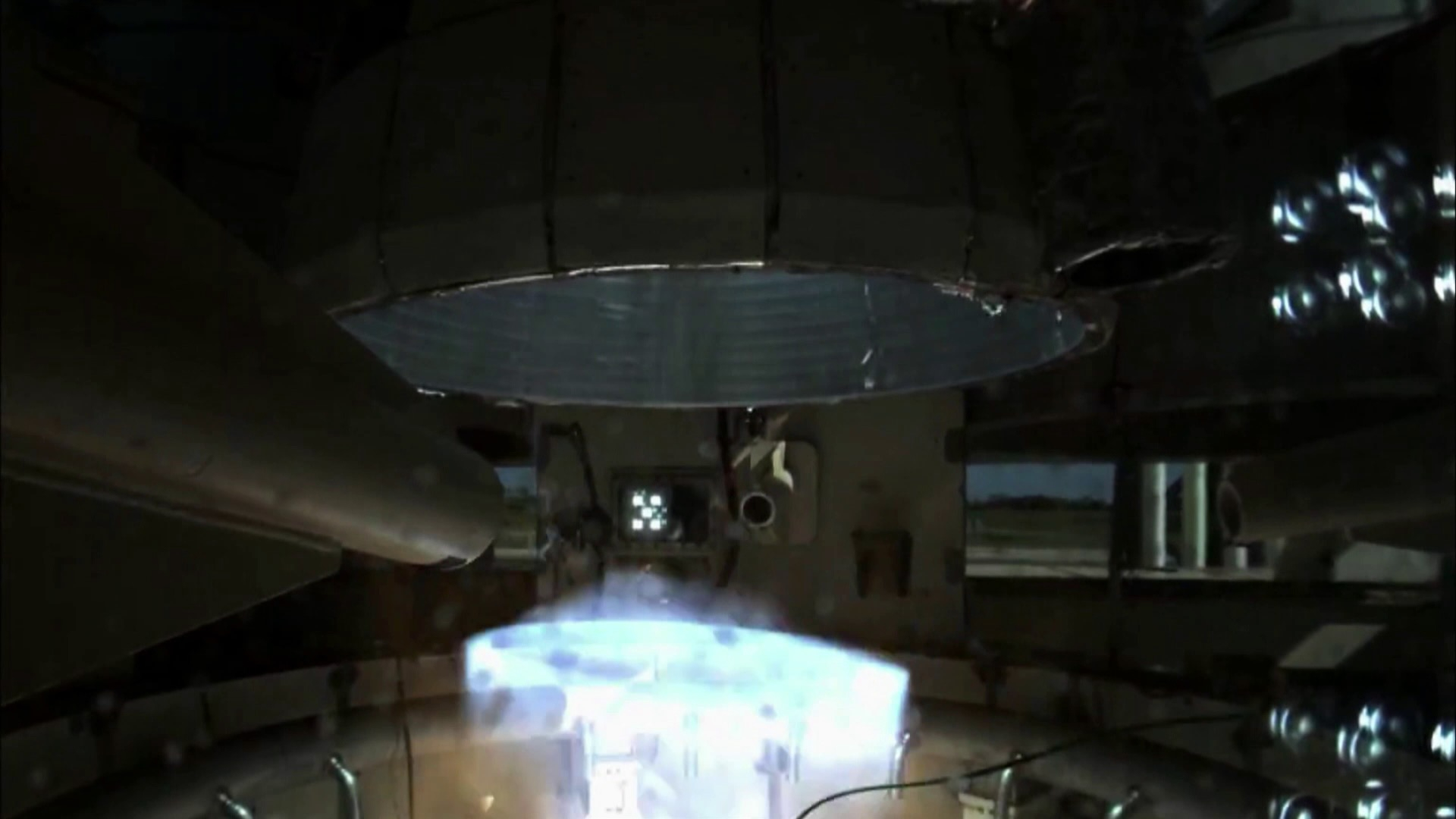Europe's new Ariane 6 heavy-lift rocket passed a crucial engine burn today (Nov. 23), keeping it on track for a debut liftoff sometime next year.
An Ariane 6 test vehicle conducted a full-scale launch rehearsal on the pad today at Europe's Spaceport in Kourou, French Guiana. The climax came when the vehicle fired its single Vulcain 2.1 engine for about seven minutes — as long as it would burn during an operational launch.
"This milestone rehearsal comes after years of designing, planning, preparing, building and hard work from some of the finest space engineers in Europe," Josef Aschbacher, director general of the European Space Agency (ESA), said in a statement. "We are back on track towards resecuring Europe’s autonomous access to space. Well done to all involved!"
Related: 1st launch of Europe's new Ariane 6 rocket slips to 2024

The Ariane 6 is Europe's next-generation heavy-lifter. The rocket consists of a core stage, powered by a single Vulcain 2.1, as well as an upper stage that sports a smaller Vinci engine. The vehicle is also outfitted with either two or four solid rocket boosters, which increase its thrust at liftoff.
The Ariane 6 will replace the workhorse Ariane 5, which retired this past July after 27 years of service and more than 100 successful launches. Though the new rocket was supposed to be up and running by 2020, enabling a smooth transition between the two European vehicles, it has suffered a series of delays.
The vehicle's builders are now targeting a debut liftoff sometime in 2024, and today's test is an important milestone on that road to flight.
Get the Space.com Newsletter
Breaking space news, the latest updates on rocket launches, skywatching events and more!
The Vulcain 2.1 burned through nearly 165 tons (150 metric tons) of propellant — supercold liquid oxygen and liquid hydrogen — during today's trial, ESA officials said.

Today's test wasn't the first time the Ariane 6 had fired up its main engine. For example, teams also conducted an Ariane 6 launch rehearsal on the pad at Kourou on Sept. 5. The exercise included a test-firing of the Vulcain 2.1, though that burn lasted just four seconds.
And there will be one more hot-fire before the Ariane 6 takes off. The launch team plans to conduct a test of the upper-stage Vinci engine next month at the Lampoldshausen test center, part of Germany's space agency, known by its German acronym, DLR.
Editor's note: This story was updated at 5:45 p.m. ET on Nov. 23 with the results today's engine test.
Join our Space Forums to keep talking space on the latest missions, night sky and more! And if you have a news tip, correction or comment, let us know at: community@space.com.

Michael Wall is a Senior Space Writer with Space.com and joined the team in 2010. He primarily covers exoplanets, spaceflight and military space, but has been known to dabble in the space art beat. His book about the search for alien life, "Out There," was published on Nov. 13, 2018. Before becoming a science writer, Michael worked as a herpetologist and wildlife biologist. He has a Ph.D. in evolutionary biology from the University of Sydney, Australia, a bachelor's degree from the University of Arizona, and a graduate certificate in science writing from the University of California, Santa Cruz. To find out what his latest project is, you can follow Michael on Twitter.









